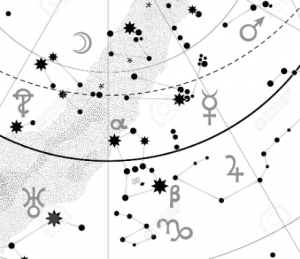Do Retrograde Transits Affect Predictive Astrology? Exploring the Impact of Retrograde Planets on Astrological Predictions

If you’re familiar with astrology, you’ve likely heard the term “retrograde” thrown around quite a bit. When a planet goes into retrograde, it appears to move backward in the sky. Astrologers believe that these retrograde periods can have a significant impact on our lives, affecting everything from our communication to our relationships. But how do retrograde transits affect predictive astrology?
In predictive astrology, astrologers use a person’s natal chart to make predictions about their future. This can include everything from major life events to more minor changes in their daily life. Retrograde transits can play a role in these predictions, as they can indicate a time of introspection and reflection. Depending on which planet is in retrograde, astrologers may predict a period of confusion, delays, or challenges.
While retrograde transits can certainly affect predictive astrology, it’s important to remember that not all retrogrades are created equal. Some retrogrades may have a more significant impact on your life than others, depending on their placement in your natal chart and the current astrological climate. As with all aspects of astrology, interpretation and knowledge are key when it comes to understanding how retrograde transits may affect your life.
Key Takeaways
- Retrograde transits can have an impact on predictive astrology, as they may indicate a period of introspection or reflection.
- Not all retrogrades are created equal, and some may have a more significant impact on your life than others.
- Interpretation and knowledge are key when it comes to understanding how retrograde transits may affect your life.
Understanding Retrograde Transits
Planetary Movements
In astrology, planets move either in a direct or retrograde motion. When a planet is in direct motion, it moves forward in its orbit around the sun. On the other hand, when a planet is in retrograde motion, it appears to move backward in its orbit. Retrograde motion is an optical illusion caused by the relative positions of Earth and the planet in question.
The inner planets, Mercury and Venus, go into retrograde more frequently than the outer planets. Mercury retrograde, in particular, is well-known for its impact on communication, travel, and technology. Retrograde cycles of the outer planets, on the other hand, are longer and less frequent, lasting several months.
Impact of Retrogrades
When a planet is in retrograde motion, its energy is said to be turned inward. This can lead to a period of reflection, introspection, and transformation. Retrograde transits can be challenging, but they also present an opportunity to resolve long-standing issues and evolve as a person.
Retrogrades can affect different areas of life depending on the planet involved. For example, Venus retrograde can impact relationships, love, and desire, while Mars retrograde can affect goals, dreams, and motivation. Saturn retrograde can bring a period of reflection on structure, responsibility, and limitations, while Jupiter retrograde can challenge beliefs and truth.
Retrogrades in Predictive Astrology
Retrograde planets in a natal chart can indicate a value or norm that is internalized and needs to be examined. Retrograde planets can also indicate a challenge or limitation that needs to be overcome. When a transiting planet goes retrograde and forms an aspect with a natal planet or point, it can trigger a crisis or opportunity for growth.
In predictive astrology, retrograde transits can indicate a period of reflection and healing. They can also indicate a time of patience and waiting for the right opportunity to present itself. Retrograde cycles of the outer planets can indicate a time of transformation and evolution on a collective level.
Overall, retrograde transits in astrology are a natural part of the cycles of growth and change. By understanding their impact and working with their energy, you can navigate these periods with greater ease and awareness.
Frequently Asked Questions
How do retrograde transits impact predictive astrology?
Retrograde transits are a significant aspect of predictive astrology. During a retrograde transit, a planet appears to move backward in the sky. Retrograde transits are known to bring delays, obstacles, and miscommunications. However, they can also provide an opportunity to revisit past issues and resolve them.
What are the most significant transits in astrology?
The most significant transits in astrology are those involving the outer planets, such as Uranus, Neptune, and Pluto. These planets have a longer orbital period and, therefore, have a more profound impact on our lives. Transits of the outer planets are known to bring significant changes, both positive and negative.
What is the meaning of retrograde in astrology?
In astrology, retrograde refers to the apparent backward motion of a planet in the sky. Retrograde planets are believed to have a more profound impact on our lives, as they bring delays, obstacles, and miscommunications. However, they can also provide an opportunity for introspection and growth.
How can I interpret planetary transits in my chart?
Interpreting planetary transits in your chart requires an understanding of astrology and the planets’ meanings. It is recommended to consult with an experienced astrologer who can help you understand the significance of the transits and their impact on your life.
What are the effects of retrograde planets in predictive astrology?
Retrograde planets are known to bring delays, obstacles, and miscommunications. However, they can also provide an opportunity for introspection and growth. Retrograde planets are believed to have a more profound impact on our lives, as they bring issues from the past to the surface.
What is the significance of transit phases in astrology?
Transit phases in astrology refer to the different stages of a planet’s transit through a sign or house. Each phase has a unique meaning and can provide insight into the planet’s impact on your life. Understanding transit phases can help you prepare for the challenges and opportunities that lie ahead.
